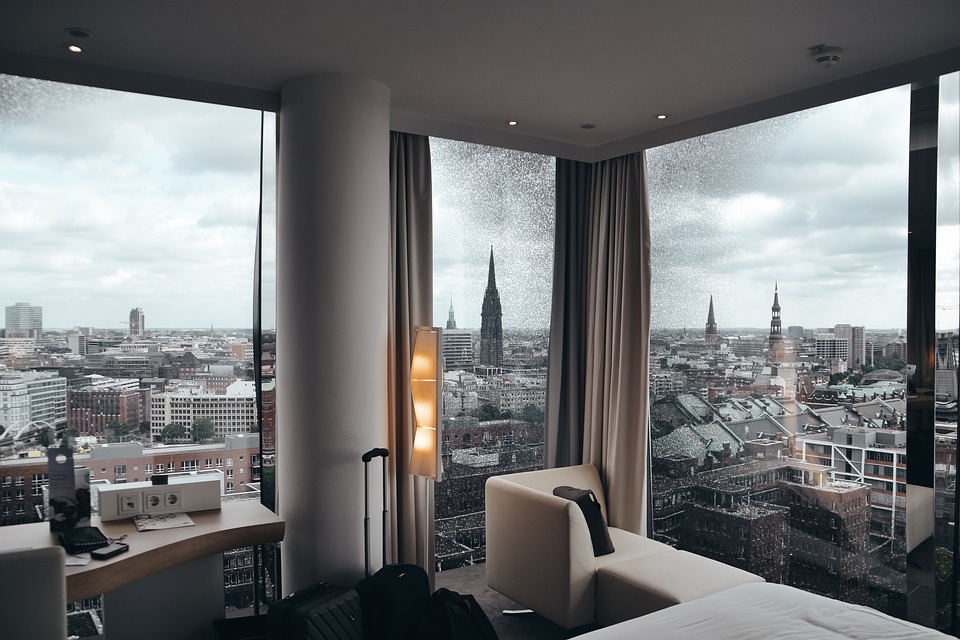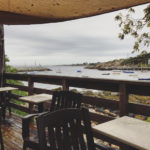
(TAN): Summer is upon us, and it is only natural for people to have an urge to travel after nearly three months of quarantine. However, many of us are wondering if it is safe to travel yet, since the pandemic is still far from over. But with several parts of the world opening up for travellers and businesses creeping back to normal, many are after all getting bit by the travel bug.
The one big question that arises before hitting the road is will it be safe to stay in a hotel, or a bed and breakfast or rental home for that matter?
Travellers hardly ever asked this question in the pre-Covid days. But things have changed now. While the entire process of travelling presents a great deal of risks right now, there are ways to minimise them and ensure a relatively safe trip.
What are the possible risks of staying in a hotel?
The Centers for Disease Control and Prevention (CDC) has reportedly said the virus is mainly spread through person-to-person contact, and that travel raises the chance of contracting or spreading it.
COVID-19 can be a cause for concern if an individual comes within six feet of an infected person, the possibility of which is higher during travel. It is also important to remember that a person can spread the virus without themselves showing any symptoms of the disease.
Although less worrying, but it is also possible to catch the virus from touching an infected surface. While staying in a hotel, guests can constantly expose themselves to potentially contaminated surfaces such as the check-in desk, tabletops, or the area around the pool, that is used by several others.
Cleaning initiatives to make guests feel safe
Hotels are doing all they can to gain public trust and bring guests back after staying empty for months. The hospitality industry is reportedly adopting cleaning protocols and investing in deep, improved cleaning, mostly through technology, so their efforts are visible to guests.
“Most are working vigorously to try to make their businesses safer and to make them more conducive to social distancing,” Amesh A. Adalja, senior scholar at the Johns Hopkins Center for Health Security was quoted by Prevention as saying.
Earlier this month, American hotel major Hilton launched a new programme, Hilton CleanStay, to introduce new ways of delivering a clean environment across all its properties worldwide. Rooms will have extra disinfection of the most frequently touched areas – light switches, door handles, television remotes, and thermostats. Housekeeping service during a guest stay will be based upon guest preference, recognising that some guests may not want staff entering their room. Stations with hand sanitiser and disinfecting wipes will be available throughout the property at primary entrances and in key high traffic areas, and biodegradable, disposable dishes will be made available upon request, among other measures.
[ALSO READ: Bain Capital to become the new owner of Virgin Australia]
“As the hospitality industry evolves to address travelers’ changing expectations – especially in the wake of the coronavirus pandemic – Hilton CleanStay is the latest evolution of our commitment to providing the peace of mind and confidence our guests need to travel freely, while protecting our team members,” President and Chief Executive Officer of Hilton Chris Nassetta said.
Global home-sharing platform Airbnb rolled out a new “Enhanced Cleaning Initiative” earlier this year which requires hosts to keep a 24-hour wait period between two bookings. The protocol comes with guidelines and a learning and certification programme available to all hosts. Listings that sign up for the procedure are open to guests for booking and accessible for immediate stay after the cleaning is complete.
“Homes have become a place of shelter, and the future of travel will also rely on a new comfort zone, with the privacy and benefits of a home away from home, without crowds or high turnovers. We are working with leading experts in health and hygiene so that our community’s trademark hospitality can incorporate official guidance and fulfill new personal preferences, with hosts and guests uniting to offer, manage and enjoy cleaner accommodations,” Greg Greeley, President of Homes at Airbnb, said.
Radisson Hotel Group announced the Radisson Hotels Safety Protocol programme for in-depth cleanliness and disinfection procedures, which includes providing hand sanitising stations at all entrances, using Personal Protective Equipment (PPE) and protective screens, following physical distancing everywhere within the properties, and enhanced and recorded cleaning and disinfection frequency, replicating food safety standards and comprehensive staff training.
Saybrook Point Resort & Marina, a privately-owned resort in Old Saybrook, in United States’ Connecticut state, is using electrostatic disinfectant sprayer technology that reportedly not just enables 360-degree surface coverage but also removes germs from surfaces as the particles in the spray are positively charged.
“In addition to following all industry protocols and standards, we’ve introduced a number of enhanced cleaning and sanitisation measures to help ensure a safe environment for our staff and guests. We’re using electrostatic sprayer technology that’s been adopted by some of the world’s largest hotel chains and airlines to apply disinfectants. It helps the product to surround and cling to surfaces in ways traditional cleaning measures can’t,” General Manager John Lombardo was quoted by USA Today as saying.
[ALSO READ: India considers creating international travel bubbles]
Check-in experience is different now
Hotel check-in has changed, keeping with the changing trends of travel in the post-pandemic era.
At Hilton properties, guests can opt for a contactless arrival experience which includes check-in, choosing their room, unlocking the door with a digital key and checking out using their mobile devices through the Hilton Honors mobile app.
Diamond Mills Hotel & Tavern, a small luxury boutique property in Saugerties, New York, has reportedly introduced a virtual check-in so that guests can fill out forms and get their credit cards authorised online. On arrival, all that guests have to reportedly do is pick up their disposable waiting room key from the reception, familiarise themselves with the measures that are being followed within the property and head to their rooms.
“We didn’t close the lobby completely, but there’s nothing really in there right now,” CNBC quoted Gina Hornbeck, hotel Manager at Diamond Mills as saying.
What to find out before booking an accommodation
Although it is impossible to have a completely safe stay, travellers need to ask certain questions before booking an accommodation. You can start with finding out if handwashing or hand sanitising stations are available throughout the property, especially in common areas. Air quality is a key parameter, which is why it is helpful for a hotel to have High Efficiency Particulate Air (HEPA) filters installed.
Digital keys are a smart measure, since they minimise contact. You could also check what protocols on face coverings and health screenings for guests and staff are being followed at the hotel. It is also worth checking if the property is doing a 100% capacity and allowing one-night stays, as that would mean a more crowded hotel and higher risk.
What can you do to promote your own safety?
You can minimise exposure by wearing a face covering and practising physical distancing in common areas. If you cannot avoid contact with commonly-touched surfaces, consider wiping them down with sanitising wipes. Wash your hands or use hand sanitiser frequently, particularly after a trip to the common areas.
To curtail contact with people, you might want to opt out of housekeeping services. As for food, you could order room service or a no-contact delivery. In case you have to eat in the hotel’s dining area, make sure the tables are significantly spaced, they are being disinfected between customers, and there is enough ventilation in the space.
“In general, you might want to avoid places where people are congregating,” Dr. Adalja was quoted by Prevention as saying.
If not a hotel, then where?
Holidaymakers desperate to go on trips are increasingly turning to campers and recreational vehicles (RVs), reports said.
Manufacturers and suppliers of RVs, and campground managers reported an influx of customers and users of these vehicles, many of them first-timers – people who are hesitant to spend their nights at hotels, as per reports. The perceived sense of safety that the vehicles gives means travellers can step out of their quarantine shelters and travel without constantly worrying about the health risks they might potentially be exposing themselves to, according to reports.
“Every dealer that I talk to is just blown away by the reaction of people that have never even thought about an RV. A lot of people are really going to look more at this lifestyle,” Bob Martin, Chief Executive Officer of United States-based RV manufacturer Thor Industries, was quoted by Bloomberg Quint as saying.




